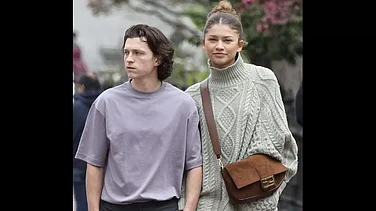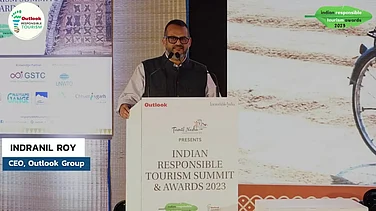From the history of money to the history of theatre, an exhibition on the vibrant culture of Kolkata, or a recap of the life and times of some of the Bengali stalwarts, these new age Kolkata museums offer interesting insights into the various aspects of the city. Some of them are housed in heritage buildings which got a fresh lease of life through adaptive reuse.?
Walk Down Memory Lane: 5 Theme Based Museums Of Kolkata
Museums that take you on a trip through Bengal's history and culture

Reserve Bank of India Museum

Did you know that salt was considered so important in ancient times that it was used as a means of financial exchange and even to pay wages? Or that until mid-1960s, the country of Yap (a cluster of? islands in the Western Pacific Ocean) used doughnut shaped stones, which varied in size ranging from a saucer to a milestone, as their currency (called ‘fei’)? You will find more such historical anecdotes illustrated in the Reserve Bank of India Museum, the second one in the country, located in Kolkata.
The museum occupies the ground floor of a more than a century old heritage building from where the Reserve Bank of India started functioning after its formation in 1935. Before entering the main museum, pause at the reception area (which also has a souvenir shop) to take a look at the artistic decorations made from old, out-of-circulation coins, and shredded currency notes. Through infographics, old artefacts and machineries, photographs, dioramas and interactive displays, the main museum talks about the evolution of money, the history of banking in India, the role of the RBI, the stalwarts of the Indian banking system, the exchanges, etc. There are also interactive games for children to learn about saving money and investing. At the end of the guided tour, you will be given a certificate with your name printed on it, the printing done on an old machine that earlier used to print bonds issued by the government.
Address:? 8 Council House Street, BBD Bag, Kolkata 700001. Timing: Open every day (except national holidays), 10am to 5pm.? Entry free. Groups have to book in advance. Videography not allowed.
Metcalfe Hall

It is the Corinthian pillars of this 19th century edifice that will first draw your attention. Facing the Hooghly River, the pillars’ capitals are said to resemble the simplified style followed in the portico of the Tower of the Winds in Athens. Named after Charles Theophilus Metcalfe (acting governor-general of India from 1835-36), who was instrumental in ensuring the freedom of the Indian press, it was home to the then Calcutta Public Library and then Imperial Library.
While the Hall has been developed as a place to hold exhibitions, it is also housing an exposition on the city called ‘Ami Kolkata’ (I am Kolkata). But instead of the city’s past, you will see the depiction of the city’s vibrant culture and lifestyle. Cinema posters, depiction of visual culture, music and the literary arts, city scenes that evoke nostalgia or reflect contemporary times, have been expressed through art installations and displays. You depart with the sounds of the city resonating in your ears with an audio treat that highlights an orchestra of soundscapes recorded right from the city streets.
Address: 12 Strand Road, near the Millennium Park main gate. Timings: 10am to 5pm, all days. No entry fee.
Belvedere Hall

This grand building, drawing inspiration from Italian Renaissance architecture, in the middle of a sprawling garden, changed hands several times. It is said that Bengal’s Nawab Mir Jafar was its first occupant (after the Battle of Plassey in 1757) and subsequently gifted it to Governor-general Warren Hastings, who lived there until 1780. It also served as the official residence of the lieutenant governors and viceroys of British India. It also served as the Imperial Library. Prior to its renovation, it housed the National Library. The library now operates from a new building on the premises while post renovation, the Belvedere Hall has been opened as a museum with a permanent exhibition.
There are two separate exhibitions here. At the entrance is a sculpture gallery maintained by the Indian Museum. Then in the former banquet hall and the gallery running around it, is the exhibition titled Icons of Nationalism–from the soil of Bengal. Established by the Union Ministry of Culture, the exhibition has been built around four notable Bengalis—Bankim Chandra Chattopadhyay, Rabindranath Tagore, Netaji Subhas Chandra Bose and Syama Prasad Mookerjee. Key events in their life and achievements have been highlighted through timelines, photographs, copies of newspaper clippings and letters, and audio presentations.
Address: Block A, Alipore, near the Alipore Zoo. Timings: 10am to 6pm, Tuesday to Sunday. No entry fee. Guided tour available.?
Kolkata Port Trust Maritime Archives and Heritage Centre

The Fairlie Warehouse, one of the many old warehouses that line the Strand Road just before it ends near the Kolkata-end of the Howrah Bridge, has been converted to a Maritime Archives and Heritage Centre under the aegis of Kolkata Port Trust. The early history of Kolkata, the Hooghly river system, the establishment of the docks, the people powering the Port Trust, the various landmark events connected with the port or its administration, important social incidents, including the damage to life and property during the two World Wars, etc.? have been well documented through informative panels, display cases of original artefacts, and replicas of lighthouses, ships, etc. Even the chapter of indentured labour travelling from India to the foreign shores is well documented.
Address: 6, Strand Rd, Kolkata, West Bengal 700001. Timing: Open Monday to Friday (closed on weekends and other holidays), 10am to 5pm.
Theatre Museum

Tucked away in Salt Lake, on the eastern fringe of the city, the Theatre Museum has been founded by the Natya Sodh Sansthan. The Sansthan, founded in 1981, has been working as a resource and research centre. A part of their archival material and artefacts have been displayed in the museum. The displays have been divided into three categories – Sanskrit Theatre, Folk Theatre and Modern Theatre. From original manuscripts to photographs and posters, books to old tickets, it is a veritable walk down memory lane. You can also learn about the evolution of theatrical stages through the scaled down replicas on display. There are also masks, costumes, etc. on display. Prior permission necessary.
Address: Natya Bhavan , EE-8, Phase: II, Bidhan Nagar (Salt Lake), Kolkata-700091.
- Previous Story
 Tom Holland Recalls ‘Trip Of A Lifetime' Visiting India With Girlfriend Zendaya
Tom Holland Recalls ‘Trip Of A Lifetime' Visiting India With Girlfriend Zendaya - Next Story
























